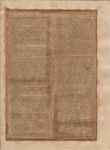< Theosophy Simplified (continued from page 4-212) >
wields it, and the man who has achieved this is above the majority of his fellows, and has learned, one of the greatest lessons of life.
Then it has been further mis-stated that the Theosophists do not believe in the return of their departed friends, nor in the action of high-class spirits. Let us look into Isis Unveiled, At page 67, Vol. L, we find:—
We are far from believing that all the spirits that communicate at I circles are of the classes called “elemental” and “elementary.” Many, especially among those who control the medium subjectively to speak, write, and otherwise act in various ways, are human, disembodied spirits. Whether the majority of such spirits are good or bad, largely depends on the private morality of the medium, much on the circle present, and a great deal on the intensity and object of their purpose. If this object is merely to gratify curiosity and to pass the time, it is useless to expect anything serious. . . . One of the most powerful attractions of our departed ones is their strong affection for those whom they have left on earth. It draws them irresistibly, by degrees, into the current of the astral light vibrating between the person sympathetic to them and the universal soul, (See also Vol. II. p. 593, “The greatest philosophers,” et seq. Also, Col. Olcott’s letter, “about other mediumship than physical,” et seq.)
Col. Olcott speaks of discouraging mediumship, “except under the most favourable conditions,” and Madame Blavatsky has been accused of disparaging mediums. Let us again turn to Isis Unveiled, After discussing a parallel drawn by. a writer in The Spiritualist, between modern mediums and the workers of so-called miracles in ancient times, we find (Vol. I., p. 486):—
Were these God-like men “mediums,” as the orthodox Spiritualist will have it? By no means, if by the term we understand those “sick-sensitives” who are born with a peculiar organisation, and who, in proportion as their powers are developed become more and more subject to the irresistible influence of miscellaneous spirits, purely human, elementary, or elemental. Unquestionably so, if we consider every individual a medium in whose mesmeric atmosphere the denizens of higher invisible spheres can move, and act, and live. In such sense every person is a medium….. Mediumship is measured by the quality of the aura with which the individual is surrounded. This may be dense, cloudy, noisome, mephitic, nauseating to the pure spirit, and attract only those foul beings who delight in it, as the eel does in turbid waters; or it may be pure, crystalline, limpid, opalescent as the morning dew. All depends upon the moral character of the medium. About such men as Apollonius, Iamblichus, Plotinus, and Porphyry, there gathered this heavenly nimbus. It was evolved by the power of their own souls in close union with their spirits; by the superhuman morality and sanctity of their lives, and aided by frequent interior ecstatic contemplation, Such holy men pure spiritual influences could approach. Radiating around an atmosphere of pure beneficence, they caused evil spirits to flee before them. This is mediatorship, not mediumship. Such persons are temples in which dwells the spirit of the living God.
In speaking words of warning against the influences that frequently control physical mediums, Madame Blavatsky has said no more than Andrew Jackson Davis, the great American Seer, in his book on The Diakka, and Mr. Epes Sargent in his Proof Palpable. (See Isis Unveiled, Vol. I., pp. 218-220.)
Returning to Madame Blavatsky’s advocacy of the study of magic and ancient philosophy as the cure for many of the evils now surrounding mediums and mediumship, we find the principles of magic summed up in the last chapter of Isis Unveiled, which I would recommend to the careful study of all readers of that book. Herein are comprised the subjects which engage the attention of the Theosophist. He is but a student; like St. Paul of old, he counts not himself to have apprehended; but he stretches forward towards the mark of the prize of his high calling, and he hopes in the end to win.
If any among you can see in this aim that which should excite the anger of the orthodox Spiritualist, or make him desire a separation instead of a closer union between them, then I think such a one must see with the eye of prejudice, or through the spectacles of prepossession.
True it is, that some of the doctrines set forth in Col. Olcott’s letter, are such as we may not be prepared to receive, but they are, in the first place mostly expository of matters which it does not concern us to decide upon, and which most of us can, therefore, leave aside altogether; and, secondly, they are given as Madame Blavatsky says repeatedly, not as the conclusions of the Theosophical Society, or of any one or all of its members, but simply as the teachings of ancient philosophers and theurgists, based upon their experience. We may take it for what it is worth, and prove or disprove it for ourselves.
The Soul
...
Dr. Slade was unwell on his first arrival in St. Peterburg, but is slowly recovering.
Editor's notes
- ↑ The Soul by Mittra, Peary Chand, Spiritualist, The, February 15, 1878, p.-77
